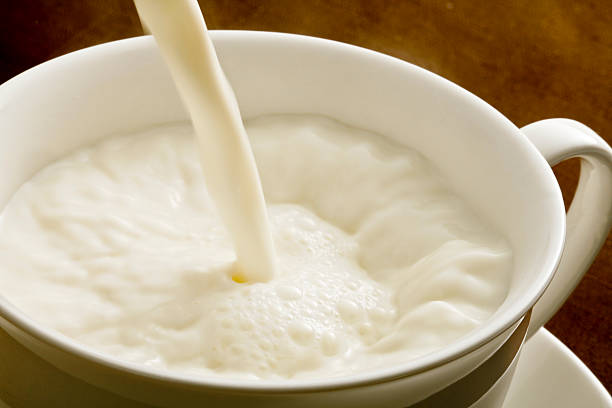Sleep is one of the most vital aspects of human health, yet for millions of people around the world, getting a restful night’s sleep feels like an impossible dream. You may find yourself tossing and turning, staring at the ceiling, or waking up repeatedly throughout the night. While stress, environment, and lifestyle often play roles in poor sleep, what you eat and drink can also have a profound impact on the quality of your rest.
The connection between diet and sleep is not just an old wives’ tale—it’s backed by science. Certain foods and drinks contain compounds that help regulate your body’s sleep-wake cycle, calm the nervous system, and prepare your body for restorative rest. From tryptophan-rich snacks to drinks that soothe your mind, these natural sleep aids can make a noticeable difference.
In this article, we’ll explore 15 of the best foods and drinks for better sleep, diving into what makes them effective, how they work in your body, and how you can incorporate them into your nightly routine.
1. Almonds
Almonds are more than just a crunchy, satisfying snack—they’re also a natural sleep booster. Rich in magnesium, almonds help relax your muscles and calm the nervous system. Magnesium plays a critical role in reducing levels of the stress hormone cortisol, which can interfere with sleep.
Additionally, almonds contain melatonin, the hormone responsible for regulating your body’s circadian rhythm. Eating a small handful of almonds in the evening can signal to your body that it’s time to wind down.
How to enjoy: Eat a handful of raw or lightly roasted almonds, or spread almond butter on whole-grain toast as a pre-bedtime snack.
2. Warm Milk
The image of a glass of warm milk before bed isn’t just comforting—it has a scientific basis. Milk contains tryptophan, an amino acid that helps the body produce serotonin and melatonin, two key players in sleep regulation.
Moreover, the psychological association of warm milk with childhood comfort can also help soothe the mind, reducing anxiety and preparing you for rest.
How to enjoy: Heat up a glass of milk and add a pinch of cinnamon or honey for extra relaxation.
3. Chamomile Tea
Chamomile tea has long been used as a natural remedy for insomnia. Its secret lies in apigenin, an antioxidant that binds to receptors in your brain, reducing anxiety and promoting sleepiness.
Studies show that chamomile tea can improve sleep quality and reduce the time it takes to fall asleep. Unlike caffeinated teas, chamomile is naturally free of stimulants, making it one of the best bedtime beverages.
How to enjoy: Brew a cup of chamomile tea 30–60 minutes before bed. For added benefit, pair it with a small bedtime snack like a banana.
4. Bananas
Bananas are often considered a morning fruit, but they also make an excellent nighttime snack. They’re rich in potassium and magnesium, both of which help relax muscles and calm the nervous system.
They also contain vitamin B6, which helps convert tryptophan into serotonin and melatonin. Together, these compounds make bananas a natural, sleep-friendly food.
How to enjoy: Slice a banana over oatmeal or blend it into a smoothie with milk for a creamy bedtime drink.
5. Walnuts
Walnuts are another nut that promotes better sleep. Like almonds, they’re a natural source of melatonin. They also contain omega-3 fatty acids, which support brain health and help regulate neurotransmitters involved in sleep.
Some studies suggest that the fatty acid alpha-linolenic acid (ALA) in walnuts can help increase serotonin production, improving mood and supporting a healthy sleep cycle.
How to enjoy: Eat a small handful of walnuts in the evening or sprinkle them over yogurt for a calming pre-bed snack.
6. Kiwi
Kiwi may not be the first fruit you think of for sleep, but research shows it can be surprisingly effective. A study found that people who ate two kiwis before bed fell asleep faster and slept longer.
Kiwis are rich in serotonin, which helps regulate the sleep-wake cycle, and antioxidants like vitamin C and carotenoids that reduce inflammation and improve overall health—factors linked to better sleep.
How to enjoy: Eat one or two fresh kiwis about an hour before bedtime for the best results.
7. Tart Cherry Juice
Tart cherries are one of the few natural food sources of melatonin, making tart cherry juice a powerful sleep aid. Studies show that drinking tart cherry juice can increase sleep time and quality, especially in people with insomnia.
In addition to melatonin, tart cherries contain antioxidants that help reduce inflammation, which is linked to better sleep.
How to enjoy: Drink a small glass of tart cherry juice about an hour before bed, but avoid sweetened versions, which may contain too much sugar.
8. Fatty Fish
Fatty fish like salmon, tuna, trout, and mackerel are rich in omega-3 fatty acids and vitamin D, both of which play roles in serotonin regulation. Higher serotonin levels contribute to better melatonin production and improved sleep quality.
One study found that people who regularly ate fatty fish fell asleep faster and experienced deeper sleep compared to those who didn’t.
How to enjoy: Prepare a salmon dinner a few hours before bed, served with vegetables and whole grains for a balanced, sleep-friendly meal.
9. Turkey
Turkey is famous for making people sleepy after Thanksgiving dinner—and it’s not just a myth. Turkey is packed with tryptophan, the amino acid that helps produce serotonin and melatonin.
It’s also rich in protein, which can make you feel full and prevent late-night hunger pangs from disturbing your sleep.
How to enjoy: Eat a small portion of roasted turkey with a light side dish in the evening, or make a turkey sandwich on whole-grain bread as a bedtime snack.
10. Oatmeal
Oatmeal isn’t just for breakfast—it’s a fantastic bedtime food too. Oats are a natural source of melatonin and complex carbohydrates, which help promote the release of serotonin in the brain.
The slow-digesting carbs in oatmeal can also keep your blood sugar stable overnight, reducing the chances of waking up hungry.
How to enjoy: Make a small bowl of oatmeal in the evening and top it with banana slices, walnuts, or a drizzle of honey for added sleep benefits.
11. Herbal Teas (Valerian, Lavender, and Lemon Balm)
Beyond chamomile, other herbal teas are also known for their sleep-promoting properties.
- Valerian root tea: Contains compounds that increase levels of GABA, a neurotransmitter that calms the nervous system.
- Lavender tea: Known for its soothing aroma and ability to reduce anxiety.
- Lemon balm tea: Helps reduce stress and may improve sleep quality when consumed regularly.
How to enjoy: Brew one of these calming teas before bed, ideally as part of a relaxing nighttime ritual.
12. Yogurt
Yogurt is rich in calcium, which helps the brain use tryptophan to make melatonin. Calcium deficiency has been linked to disturbed sleep, so adding yogurt to your diet may help you rest better.
The probiotics in yogurt also support gut health, which emerging research suggests is connected to sleep regulation through the gut-brain axis.
How to enjoy: Eat a small bowl of plain yogurt with fruit or honey as a pre-bedtime snack.
13. Honey
Honey has been used as a natural sleep aid for centuries. It helps raise insulin slightly, which allows tryptophan to enter the brain more easily. Once inside, tryptophan is converted into serotonin and melatonin, promoting relaxation and sleep.
Honey also provides a quick source of glucose, preventing nighttime hunger that could disturb sleep.
How to enjoy: Add a teaspoon of honey to warm milk, herbal tea, or oatmeal before bed.
14. Spinach and Leafy Greens
Leafy greens like spinach, kale, and Swiss chard are packed with magnesium, calcium, and potassium—all minerals that support relaxation and help prevent muscle cramps during sleep.
These greens also provide folate and vitamin B6, both important for neurotransmitter function and melatonin synthesis.
How to enjoy: Incorporate a leafy green salad into your dinner or add spinach to a smoothie for a nutrient boost before bed.
15. Pistachios
Pistachios stand out among nuts because they contain some of the highest levels of melatonin of any food. Just a small handful can provide a significant boost to your body’s natural sleep signals.
They’re also rich in protein, vitamin B6, and magnesium, which work together to support healthy sleep cycles.
How to enjoy: Eat a small handful of unsalted pistachios about 30–60 minutes before bed.
Conclusion
Sleep is not just about the hours you spend in bed—it’s about the quality of those hours. The foods and drinks you consume can play a crucial role in how quickly you fall asleep, how deeply you rest, and how refreshed you feel in the morning. From magnesium-rich nuts and potassium-packed bananas to calming teas and melatonin-loaded tart cherries, nature offers a variety of delicious options to improve your nightly rest.
By incorporating these 15 foods and drinks into your diet, you can naturally support your body’s sleep cycle without relying solely on supplements or medication. Pairing these sleep-friendly choices with healthy bedtime habits—like limiting caffeine, reducing screen time, and keeping a consistent sleep schedule—can transform restless nights into peaceful slumber.
Your journey to better sleep may begin not in the bedroom, but in the kitchen. After all, every bite and sip can bring you one step closer to the restorative sleep your body and mind crave.






